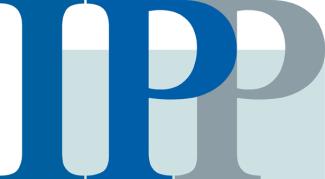Seminario IPP: Presentación del libro "Bioeconomies: life, technology and capital in the 21st century", editado por Vincenzo Pavone y Joanna Goven
Participan 3 de sus autores: Sara Lafuente (IPP-CSIC), Pablo Santoro (UCM) y Carmen Romero Bachiller (UCM)
Sala Herbert A. Simon 3D
Organiza: Francisco Herreros (IPP, CCHS-CSIC)
Este libro ha sido publicado por la editorial Palgrave.
Abstract del libro: This book explores the promissory discourses and practices associated with the bioeconomy, focusing especially on the transformation of institutions; the creation, appropriation, and distribution of value; the struggle over resources, power, and meaning; and the role of altruism, kinship, and care practices. Governments and science enthusiasts worldwide are embracing the bioeconomy, championing it as the key to health, wealth, and sustainability, while citing it as justification to transform research and regulatory institutions, health and agricultural practices, ethics of privacy and ownership, and conceptions of self and kin. Drawing together studies from Asia, Australia, the Americas, and Europe, this volume encompasses subjects as diverse as regenerative medicine, population health research, agricultural finance, biobanking, assisted reproduction, immigration, breastfeeding, self-help groups, GM fish, and mining sewage.
- Sara Lafuente, IPP-CSIC
Ch. 11 Egg donation in the making: gender, selection and (in)visibilities in the Spanish bioeconomy of Reproduction
This chapter looks at how reproductive bioeconomies in Spain work by looking at them through the lenses of egg donation. IVF treatments with donated eggs are quickly growing within Spanish IVF landscape, both for national and international patients. This paper draws on interviews with professionals of private clinics working with egg donation and argues that it is a socio-technical practice that operates through the transference of reproductive capacity from some women towards others. In this sense, egg donation should not be looked at as yet another assisted reproduction technique but rather addressed locating in the center both donors and the reproductive capacity of eggs themselves. In this sense, we argue that the focus on donor’s motivations is used to locate these acts as moral rather than economic ones, even though economic compensation is not only offered but also regarded as a clear need in so as to have potential donors.
- Pablo Santoro (UCM) y Carmen Romero Bachiller (UCM)
Ch.12. Thinking (Bioeconomies) through Care: Patients’ Engagement with the Bioeconomies of Parenting
This chapter explores the ambivalences and tensions of parents’ engagement in health bioeconomies as forms of activating care, through the analysis of two case studies concerned with childbirth and first moments of parental life—private cord blood banking and mastitis during breastfeeding. The article focuses on parents’ contributions to the bioeconomy as providers of bodily tissues—stem cells, blood, breast milk or other samples of biological materials—to be preserved, employed in research or used to produce bio-objects by bioeconomic companies. Santoro and Romero-Bachiller draw on recent STS and feminist writing on care to argue that thinking through care allows for a more nuanced approach to the analysis of citizens’ and patients’ emergent forms of subjectivity and agency brought about by new biotechnologies.



